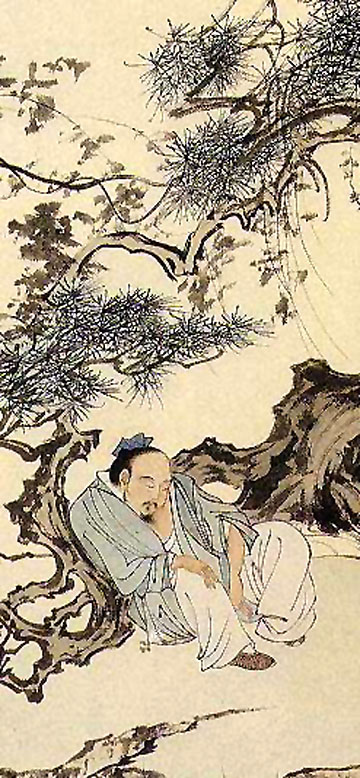Spiritual Transformation:
Practices, Techniques, Methods, Paths, Activities, Expressions
Ways, Tactics, Strategies, Plans, Engagement, Learning
Most people experiment and then discover methods that work best for them, their circumstances, age, culture, personality, education, habits, etc.
When you find a path that works best for you - stick to that way. It is likely that an open-minded and flexible person will use a variety of spiritual practices. Some aspects of each practice overlap with some aspects of other practices.
Transformation is not a goal or aim of a practice; the practice itself is the embodiment of transformation. The process is itself transformation. Your transformed here and now by doing the practice with some confidence or belief in the efficacy of the practice. As soon as you make the effort to engage in spiritual practices you immediately taste bites of nourishing enlightenment and transformation.
Aging and Spirituality, Graceful Aging, Coping with Aging
Art, Beauty, Creative Projects
Asceticism, Self-Denial, Restraint, Fasting, Self-Discipline
Bhakti Yoga, Loving-Kindness, Worship of Other and the Divine
Beauty of Ordinary Objects, Wabi/Swabi, Aesthetics, Tea
Belief, Confidence, Adherence, Trusting
Biofeedback, Electronic Aids, Lights, Air Filters
Body-Mind Practices, Somatic Therapy
Breathing, Pranayama, Breath Work, Dao Yin
Chanting, Mantras, Sound Healing, Singing
Charity, Benevolence, Sharing, Volunteering
Classes, Lectures, Training Sessions, Learning, Seminars
Cooking, Mindful Eating, Vegetarianism, Good Nutrition
Comparative Religions and Worldviews Studies
Counseling, Psychotherapy, Advisors, Guides, CBT
Eastern Options: Yoga, Buddhism, Taoism, Stoicism, Zen
Exercises: Walking, Yoga, Taijiquan, Stretching, Weight Lifting, etc.
Family Life and Social Responsibilities Met, Householder Duties
Five Senses Awareness and Explorations
Gardening: Soil Work, Planting, Nurturing, Harvesting, Watering, Ecology
Goddess Devotion and Love, Tara, Kwan Yin, Mary, Lakshmi, Shakti
Gratitude, Thankfulness, Appreciation, Satisfaction
Guided Meditations, Hypnotherapy, Wise Stories
Hatha Yoga, Tantra, Vajira Body, Longevity, Immortality
Healing, Caring, Helping, Informing
Holidays, Celebrations, Customs, Observances, Eight Sabbats
Incense, Smells, Fireplace, Flowers
Interacting with Others, Group Activities, Church or Temple Services
Jana Yoga, Wisdom Path, Insight, Understanding
Left Hand Tantra: Libertinism, Antinomianism, Sensuality, Sexuality
Magic, Incantations, Prayers, Spells, Esoterica, Tantra
Massage, Acupressure, Self-Massage
Meditation, Non-judgmental Awareness, Non-Dual Awareness
Music, Songs, Ambient Sounds, Bells/Gongs, Audio lectures
Nature Outdoors: Ocean, Mountains, Desert, Forest, Rivers, Neighborhood, Garden, Parks
Massage, Acupressure, Healing Hands, Reiki, Acupuncture, Chiropractic
Medicines, Herbal Remedies, Alternative Therapies, TCM
Movies, Documentaries, UTube Videos
Passages Repeated, Spiritual Notebooks, Inspiring Passages, Prayer Books, Hymnals
Persistence, Grit, Willpower, Determination, Perseverance, Dedication
Photography, Drawing, Painting, Viewing Sacred Images
Philosophy, Thoughtfulness, Reasoning, Understanding, Science
Pilgrimages, Visiting Sacred Places, Learning about Holy Sites
Play, Games, Sports, Homo Ludens
Praying, Invocations, Spells, Recitations
Reading, Research, Self-Study, Scriptures, Classics
Reflections, Ruminations, Considerations, Reminders
Retreats, Vision Quests, Isolation, Solitude, Solo Practice
Riddles, Puzzles, Poems, Dilemmas, Koans
Rituals, Sacraments, Sacred Rites, Rites of Passage
Sacred Objects: Altars, Statues, Bowls, Art, Books
Sacred Places, Sacred Circles, Sacred Groves, Buildings
Service to Others, Helping, Volunteering, Charity
Shamanism, Visions, Astral Travel, Meeting Spirits, Drugs
Simplicity, Frugality, Conservation, Respect for Things
Sitting in Quiet Awareness, Sitting in Oblivion, Zuowang
Smiling, Joyfulness, Positive Vibrations, Laughter, Jokes
Stories, Inspiring Fiction, Poetry
Strength Training, Weightlifting, Endurance Events
Spiritual Guides, Gurus, Enlightened Persons, Elders
Supernatural Beings: God, Allah, Shiva, Avatars/Incarnations (Jesus, Krishna, Buddha, Vishnu), Nature Spirits, Angels, Saints, Demons, Bodhisattvas, Dao, Wee Folk, Immortals (Xian), etc.
Tai Chi Chuan, Qigong, Dao Yin, Martial Arts
Tarot, I Ching, Random Visuals/Archetypes/Reminders
Theology, Thinking about the Divine, Scripture Study
Traditions, Ancestors, History, Religions, Philosophies
Walking, Hiking, Sauntering, Kinhin Walking Meditation
Yoga
Virtue Ethics, Morals, Proper Behaviors, Karma, Niyamas, Values
Visualizing, Imagining, Pretending, Fantasies, Dreams
Vows, Precepts Taking, Initiation, Confirmation
Work Responsibilities, Career, Management, Effort, Right Livelihood
Worship, Submission, Dedication, Bhakti Yoga
Writing, Journaling, Blogging, Web Publishing
Zazen, Seated Zen Meditation, Zuowang
 |
Springtime in Vancouver, WA
Mike Garofalo reading Moshe Feldenkrais |
"I am a seeker of truth on a spiritual journey.
I believe life has sacred meaning and purpose.
May my behavior today express my deepest beliefs.
May I approach each and every task today with quiet impeccability.
May I be a simple, humble, and kind presence on the earth today.
May I see the Divine Nature in all beings today.
May I be grateful today to those who came before me,
and may I make the roads smoother
for those who will travel them after me.
May I leave each place at least a little better than I found it today.
May I truly cherish this day, knowing that it may be my last.
May I remember, remember, remember, not to forget, forget, forget."
- Bo Lozoff, It's a Meaningful Life: It Just Takes Practice
How to Live a Good Life: Advice from Wise and Respected Persons
Compiled by Michael P. Garofalo










